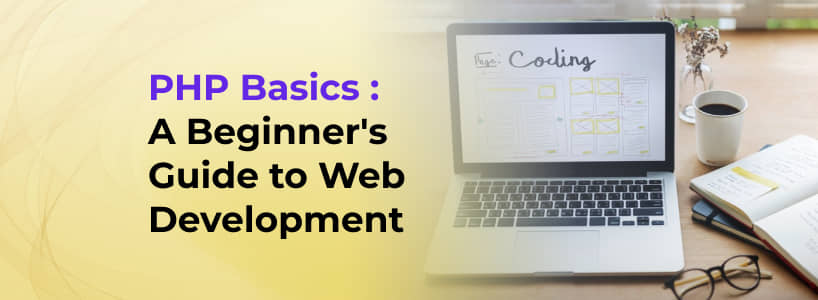Welcome to the exciting world of web development! If you're looking to create dynamic and interactive websites, PHP is a fantastic place to start. This beginner's guide will equip you with the fundamental concepts of PHP, giving you a strong foundation to build upon.
What is PHP?
PHP, which stands for Hypertext Preprocessor, is a server-side scripting language. Unlike HTML and CSS, which define the structure and style of a web page, PHP code executes on the web server before the content is sent to the user's browser. This allows PHP to create dynamic web pages that can adapt to different situations think personalized greetings, shopping carts, or content based on user input.
Why Learn PHP?
Here are some reasons why PHP is a great choice for beginners:
- Relatively Easy to Learn: PHP has a well-structured syntax that's similar to English, making it easier to pick up compared to other programming languages.
- Large and Active Community: The vast PHP community provides extensive resources like tutorials, forums, and documentation, ensuring you'll find help whenever you need it.
- Free and Open-Source: There's no cost to use PHP, and its open-source nature allows for continuous development and improvement.
- Wide Range of Applications: PHP goes beyond basic web development. It can be used for building content management systems (CMS) like WordPress, e-commerce platforms, and even mobile applications.
Getting Started with PHP
Before diving into code, you'll need to set up a development environment. This typically involves installing a web server like Apache and a PHP interpreter on your computer. Alternatively, many web hosting providers offer plans with PHP pre-installed.
Once you're set up, here are some core PHP concepts to grasp:
- Variables: These are containers that store information like text, numbers, or even arrays of data. You can use variables to hold user input or dynamically generate content.
- Data Types: PHP supports various data types like integers, strings, and booleans (true or false). Understanding these types ensures you work with data effectively.
- Operators: Operators perform calculations or comparisons on data. Examples include arithmetic operators (+, -, *, /) and comparison operators (==, !=, <, >).
- Control Flow Statements: These statements control how your code executes. Conditional statements (if/else) allow for different actions based on specific conditions, while loops (for, while) enable repetitive tasks.
Learning Resources
Here are some excellent resources to kickstart your PHP journey:
- W3Schools PHP Tutorial: [W3Schools PHP Tutorial] offers a well-structured and interactive platform to learn the basics of PHP.
- PHP Manual: [PHP manual] is the official documentation for PHP, providing in-depth explanations and reference guides.
- Online Courses: Numerous online platforms like Coursera and edX offer beginner-friendly PHP courses with video lectures and practice exercises.
Beyond the Basics
As you progress, explore more advanced topics like working with databases (like MySQL) to store and retrieve information, building forms to collect user input, and handling user sessions for authentication. Remember, practice is key! Start with small projects and gradually build your skills. The PHP Web Development community is always there to support you on your web development adventure.
Conclusion
PHP empowers you to create dynamic and interactive web experiences. With its ease of learning, vast resources, and wide range of applications, PHP is an excellent choice for aspiring web developers. Take the first step today, and explore the exciting possibilities of PHP!

